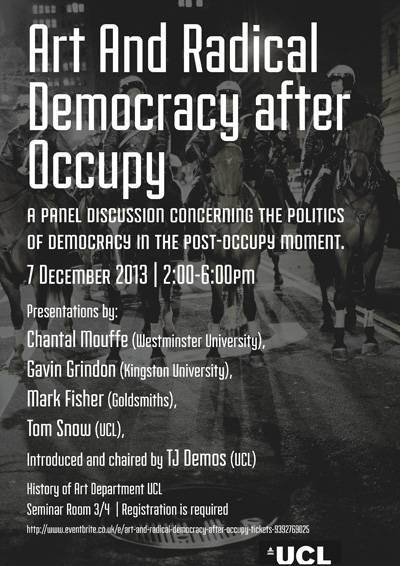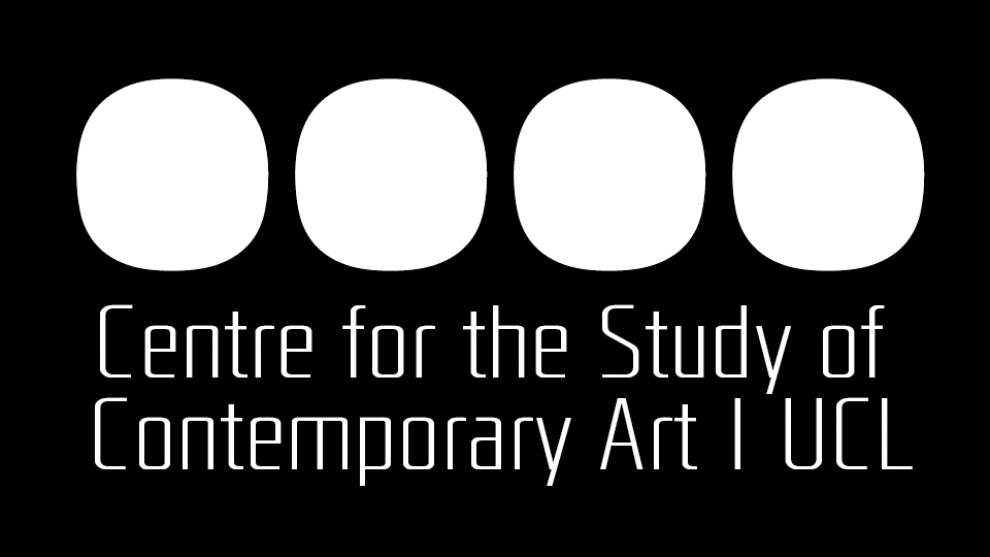
A panel discussion concerning the politics of democracy in the post-Occupy moment.
UCL History of Art Department, seminar rooms 3/4, 20 - 21 Gordon Square.
Saturday 7 December 2-6pm
All Welcome, the event is free but registration is required at Eventbrite
Protest movements of the last few years, including the Arab Spring and global Occupy demonstrations, have reshaped the way democracy is conceived across the world. Though far from identical or simply continuous, they have newly defined the politics of aesthetics as reconfigurations of affect and creativity, aligned with radical pedagogy and forms of collectivism geared toward reinventing the commons in a period of relentless neoliberal privatization. In this context, the artist's once critical and autonomous role is questionable, pushed instead toward an engaged function within the post-representational visibilities of agonistic formations, street theatrics, and mediatized counter-spectacle.
Art and Radical Democracy After Occupy aims to parse the present status of aesthetics and politics after the recent rush of social movements, which have redefined the contemporary landscape of activism's visual culture, and equally art's politics, within the current crises of corporate globalization, its obscene inequalities, and its increasingly authoritative state structures. In the post-Occupy moment, what remains of democracy? Did Occupy prefigure its necessary critical reinvention, the inevitability of its obsolescence, the presence of its bankruptcy in an age of corporate oligarchy? Or are the on-going civil disputes in many global centres testament to the possibility of change? If so, where and how, in the post-Occupy moment, can we locate points of agency, criticality, radical democracy?
 Close
Close


